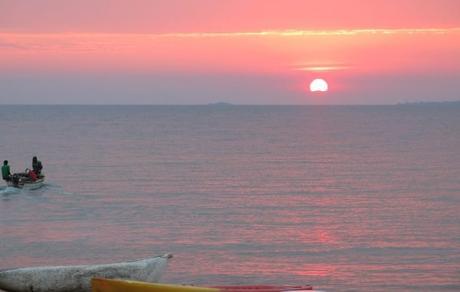
Travel is scary. No matter how experienced the traveler, each new destination is a stretch outside the comfort zone. For some, the fear of the unknown is incapacitating. It's the reason many people never leave their home town, let alone their countries. For others, though, it is the thrill of conquering these fears alone that entices them to hit the road. There is unparalleled growth beyond the walls of our safe and monotonous existence.
The potential to be in a dangerous situation in a foreign place is probably the scariest thing about traveling. Imagine being somewhere you know next to no one, where you don't speak the language, and couldn't get anywhere quickly without taking ten minutes to consult a map. Yikes. I personally don't believe, however, that this is reason enough to not venture out.
In fact, I would argue that danger lurks in even the safest places, and that instead of laying fault to the locations, we can take it upon ourselves to be prepared for what may come. Last summer, for example, I spent two months traveling through Zambia, Malawi and Mozambique. Although I had been to Egypt and Morocco before, I had no idea what to expect. The American media perpetuates a misconception that travel in Africa is more dangerous than nearly anywhere else.
For the most part, this couldn't have been further from the truth. Not only did I feel largely welcome wherever I went, I also met a number of female solo travelers who felt the same. In Zambia, I squeezed into packed buses, with my luggage tucked away out of sight, hitchhiked on the back of flatbed trucks and in the personal cars of complete strangers without issue for almost a month.
But this is not to say the entire trip was without incident. Because when I crossed over into Malawi, one of the poorest countries in the world, I was met with an unfortunate event. After withdrawing cash and heading to the market, I had almost $200 USD pick-pocketed directly from my backpack in the capital Lilongwe. It was a series of simple mistakes that leaves you wanting to blame the state of the world.
I was angry, of course. It forced me briefly to reconsider visiting Lilongwe, or to think that the locals were mean-spirited (also untrue, as Malawi is rightly known as 'the warm heart of Africa'). But then I realized that the risk of theft is present almost anywhere in the world. I could have been pick-pocketed in San Francisco or Paris and to shame an entire city, country, people or continent for one fateful event is quite simply wrong.
And, truthfully, I was partly to blame as well. I had lessened my guard after becoming more comfortable on the road. I stopped carrying my money belt and wearing clothing with hidden pockets. If instead I had taken a sturdier pack with more zippers, I may still have my $200 USD (probably not, because I like souvenirs). The truth is, though, that in the end it didn't matter. The experience I got from being in Malawi far outweighed the worth of the money itself.
That day I learned an especially valuable lesson: that you should go wherever your heart desires (within reason), but you should also be prepared to take necessary precautions. When it comes to pick-pocketing in particular, there are several travel safety tips for safe-keeping. A money belt

Whichever way you choose to go, know that there is a numerated amount of risk that comes with travel anywhere at any given time, but running the risk is always worth the rewards of the experience.

